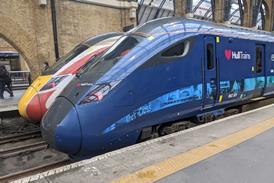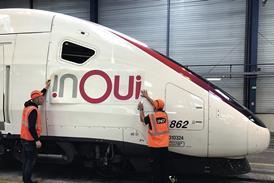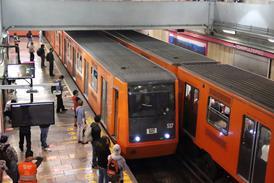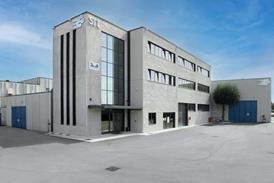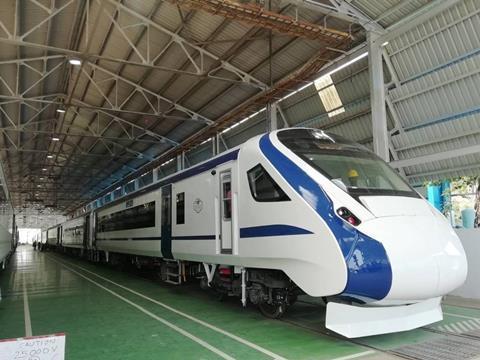
INDIA: Testing has started with a prototype 160 km/h inter-city trainset intended to accelerate and upgrade medium-distance services on Indian Railways.
Developed at the Integral Coach Factory in Chennai, the ‘semi-high speed’ trainset has been designated Train 18 after its year of manufacture. Following testing by RDSO at up to 180 km/h, the prototype is expected to enter service in January 2019, replacing a loco-hauled Shatabdi Express on the 707 km route between Delhi and Bhopal.
The 16-car electric trainset uses distributed traction, as an attempt to move away from locomotive haulage of long-distance trains. Electrically, it is formed from four subsets comprising two powered and two trailer vehicles. Each powered car has four 250 kW three-phase motors, which are fed from a 25 kV 50 Hz transformer on an adjacent trailer car, giving a total continuous rating of 8 MW.
Bodyshells for the air-conditioned trainset have been derived from the LHB stainless-steel coach design, but enhanced with power doors and retractable steps. Vacuum retention toilets are fitted, along with sealed inter-car gangways.
The prototype has 14 'non-executive' class vehicles with a maximum of 74 seats in a 2+3 configuration and two Executive class cars seating 56. Wheelchair spaces are provided, along with small pantry areas for on-train catering. The modular interiors include diffused LED lighting and individual reading lights. A GPS-based passenger information system includes infotainment and on-train wi-fi.
According to ICF, Train 18 has been developed as a ‘Make in India’ project, and is expected to cost around half the price of an equivalent trainset from an international manufacturer. Following revenue service trials with the prototype, a series build would be ordered as part of IR’s broader strategy to raise the overall average speed of its inter-city services by 25 km/h by 2022.
Northern Railway's Delhi – Bhopal Shatabdi Express is currently one of India’s fastest trains. Limited to 16 coaches and two power cars hauled by a WAP-5 locomotive, it is booked to cover the 707 km in 8 h 30 min with a maximum speed of 150 km/h.

